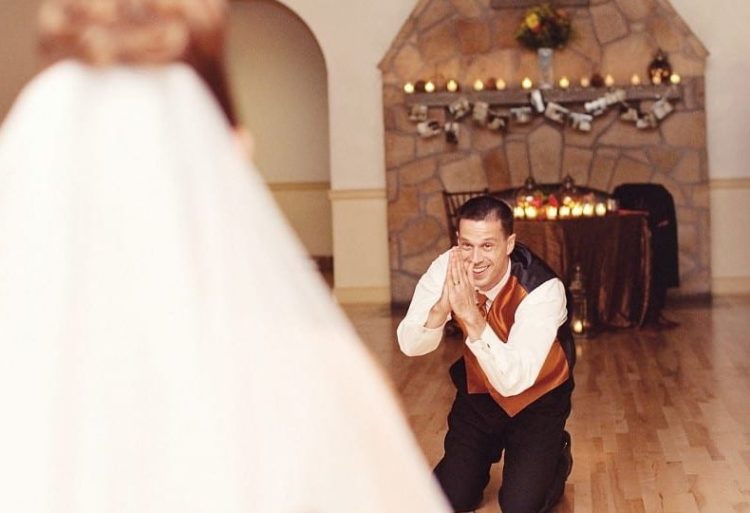
When you vow to love another person for the rest of your life, does that mean you’re swearing off an interest in everyone else? Marriage by its most classic definition is a monogamous commitment between two people, but when you look closer, the boundaries by which we define our relationships fall all over the place. One man’s innocent flirting is another man’s infidelity—and that’s just within monogamous marriages.
You can draw sexual and romantic boundaries around your relationship with your partner in any number of ways, and there are no wrong answers as long as you both agree with what’s on the table. If you’re curious about all the relationship dynamics that fall on the spectrum between ‘60s free love and militant “don’t even look at other people” dictatorship, we’ve got the details for you. What you don’t want to do is ask your partner, “Hey, you hear about this open relationship stuff? How does that strike you?” without doing your research first.
How Do Open relationships Work?
If you find that your interest in romantic relationships outside your marriage is an integral part of your identity, you may want to look into polyamory. There’s a spectrum, of course, and in exploring polyamory vs monogamy, you may also discover that you’re actually just “monogam-ish.” It’s all relative.
Some of the other topics we’ll cover are:
- polyamory
- swinging
- cuckolding
What if I want my relationship to feel open, but I don’t want to have sex with other people?
That’s fine, man. You can do that. In 1972, married couple Nena and George O’Neill published a book—part joint-memoir and part relationship manifesto—that popularized the term “open marriage.” The thing is, the O’Neills were mostly referring to staying open to emotional stimuli outside of a marriage, but as anyone who’s texted their cute coworker off hours can tell you, even encounters that don’t involve sex in an explicit way can screw up a marriage. So even if you’re not looking to date other people, you still need to tread carefully as you ask your partner for some space.
Unsurprisingly, “Open Marriage: A New Life Style for Couples” was controversial when it hit the market. Many people weren’t ready to explore the idea that your spouse doesn’t have to satisfy every single one of your needs—sexual or otherwise. Creating and prioritizing new emotional, intellectual, or even conversational bonds with people who aren’t your spouse remains a tricky topic to this day, but we have come a long way since the O’Neills ended their book with an opaque message: “We are not recommending outside sex, but we are not saying that it should be avoided, either.” Gray areas tend to make people uncomfortable, but that doesn’t mean you have to avoid them altogether.
What if I actually want to date other people?
Now we’re talking. So, you want to explore a sexually open relationship but you don’t know what kind. You need to see the full menu, right? Let’s say you walk into a bar you’ve never visited before, and you ask what they’ve got on tap. Just like craft beer, there are myriad ways to define non-monogamy. Some terms are more nebulous than others, but we can give you a full rundown so you know how to walk the walk. When it comes to having sex with people who aren’t your wife, let’s just say there’s a lot of stuff available on draft.
If you feel most fulfilled in life while exploring romantic relationships with more than one person at a time, you may come to identify as polyamorous. It’s worth mentioning that polyamorous people can decide to live monogamously, just as bisexual people can decide to marry one person of either gender.
The core concept of polyamory is that monogamy isn’t a natural fit for everyone. Notice the term is -amorous, not -sexual. Though there are always outliers, polyamorous people tend to want to put in the effort of an emotional relationship with multiple partners. It’s not usually just a married person having a series of one-night stands that his partner knows about.
What if we want to date other people together?
Polyamorous people can couple up with a primary partner, and either of those primary partners might have secondary partners of different stripes. For example, if you and your wife are polyamorous, she may have a relationship with a man or woman that’s strictly sexual, you might have a Rolodex of romantic relationships with other women, or the two of you might have the occasional threesome with a shared secondary partner. If you three get along really well, you might even decide to call your situation a committed triad, and the three of you can even date other people at the same time.
As for the lifestyle’s longevity, we’re only starting to discover whether polyamorous relationships are more or less tenable than monogamous ones. In 1999, reporter John Richardson wrote a landmark story for Esquire profiling a then-anonymous polyamorous married couple. In 2016, he followed up with the same couple for Elle and found them still happily married, though their romantic and sexual lives had shifted here and there. They had started and ended relationships outside the confines of the one they shared with each other, and 17 years later, they were (happily) the only ones left.
Open relationships as a kink or fetish
Lots of married couples like to play the “hall pass” game; ie “Which celebrity or otherwise unnaturally attractive person would I be allowed to spend a night with if the opportunity arose?” The idea is to tease at the edge of monogamous rules and fantasize about “getting away with” a sexual encounter without consequences. You could call this being “monogamish” like Dan Savage does, or you could call it a sexual “don’t ask, don’t tell” policy. Your wife might just call it cheating.
What if I’m not polyamorous but I want the occasional “hall pass”?
If you’re interested in non-monogamy, but you want to keep things casual, you can dip a toe into open waters in one of a few ways. Involving your spouse in strictly sexual one-time-only encounters has historically been called “swinging,” but as Silicon Valley’s Thomas Middleditch told Playboy in September, modern folks just call it “being part of the lifestyle.”
To try out “the lifestyle” with your partner, you can create a dating app profile together and look for a temporary sexual partner for a threesome. You can use Tinder, Hinge, Bumble, or OKCupid as a threesome-seeking duo, but there are also apps specific for group play, including Feeld and 3Somer. But beware: If you’re searching for an uncomplicated, casual, cute and bisexual girl to shake things up in the bedroom with you and your wife, there’s a reason folks refer to this imaginary girl as a “unicorn.” The world isn’t exactly full of single ladies looking to service a bored married couple.
You can also participate in sexy parties, meet-ups, or attend particular nightclubs with your spouse. By taking your monogamish relationship out of the privacy of your own bedroom, however, you’re opening yourself up to others’ rules. This can be exciting in a “whatever happens in Vegas, stays in Vegas” sort of way, but it can also prove depressing. Many sex clubs require an application process, and there’s no guarantee that both you and your partner get in.
What if I want my spouse to sleep around and tell me about it? Am I a cuck?
If you’re not interested in sleeping with other people, but you find the idea of your spouse staying open to others exciting (or arousing!), you may have an interest in cuckolding. Yes, that sounds a lot like the term “cuck,” which gets thrown around by angry alt-right misogynists, but there’s some nuance to it.
If you like being cuckolded, then it excites you to discover that another man has slept with your wife.
The term sounds old and dusty because it’s Shakespearean, but the kink is about as progressive as kinks get. If you like being cuckolded, then it excites you to discover that another man has slept with your wife. This is not the same as your wife cheating on you, though you may discover your cuckolding fetish as a side effect of infidelity. In an ideal world, a cuckold’s partner keeps him involved with the entire “affair” from start to finish, and the sexual energy that comes from flirting, seducing, and eventually sleeping with another person overflows into a married couple’s sex life.
Research David Ley, author of “Insatiable Wives,” says his findings indicate no noticeable difference in relationship satisfaction between cuckolding and non-cuckolding couples. He told CNN that he estimates 58% of men have fantasized about cuckolding scenarios, and a third of women have too. There’s also no correlation between a guy’s interest in being cuckolded and his perceived masculinity, or in his wife’s attraction to him. If anything, couples who play with cuckolding fantasies are more radically honest with each other; it’s part of the design, after all.
Cuckolding traditionally involves a woman sleeping with people who aren’t her husband, but the fetish can apply to partners of any gender identity. On Showtime’s docu-series Couples Therapy, two married women describe how sleeping with others and sharing all the sordid details with each other infused their relationship with new vitality.
In fact, regardless of what you call your particular brand of non-monogamy, you’re going to enjoy yourself more if you keep your partner in the loop as much as possible. Before either of you crosses an emotional, physical, or sexual boundary with someone else, be sure to talk through all the hypotheticals. Just like in any marriage, communication is key to a non-monogamous partnership. You may find that certain aspects of opening yourselves up aren’t as scary as you thought. In fact, you and your partner might even find them thrilling.

















